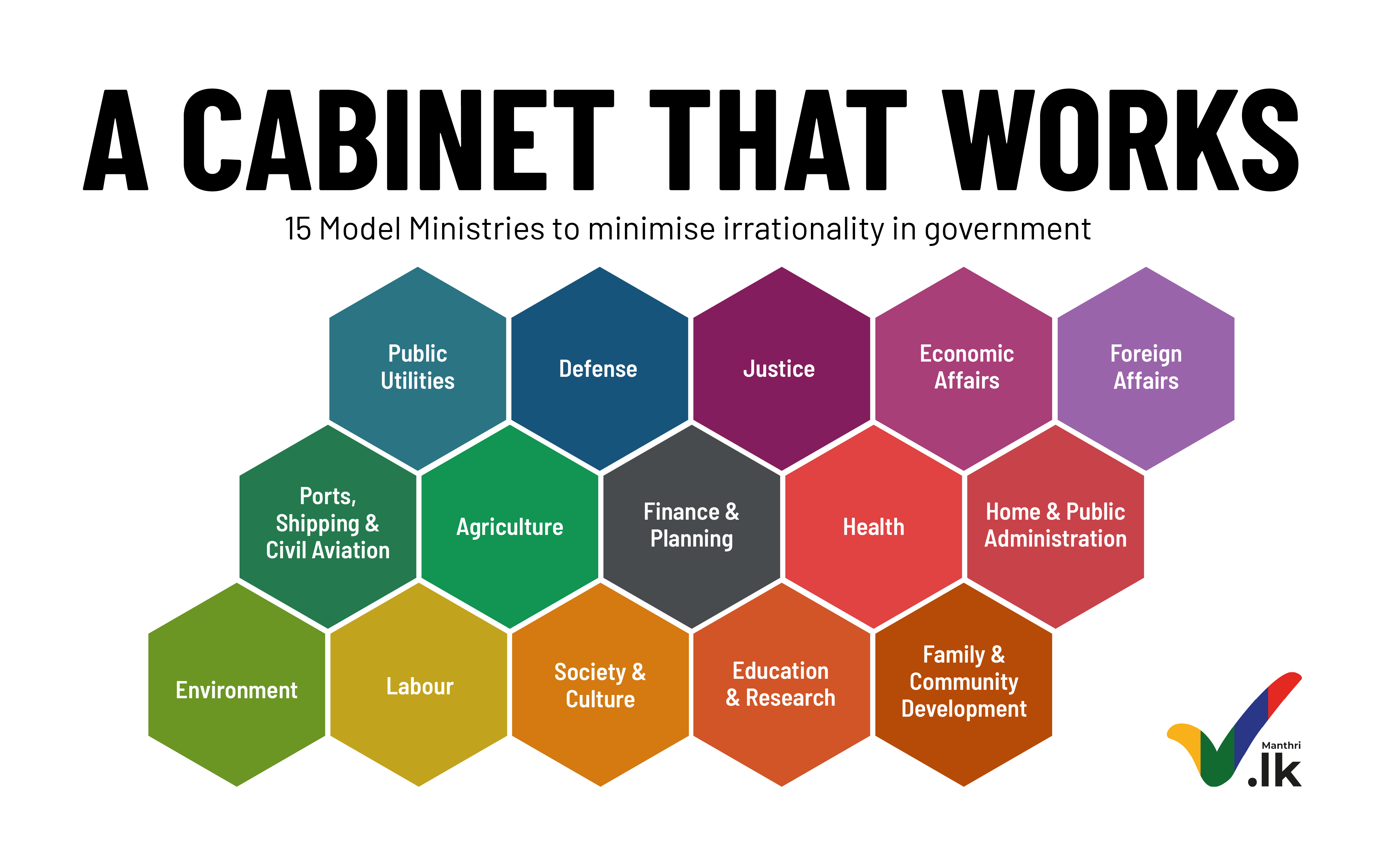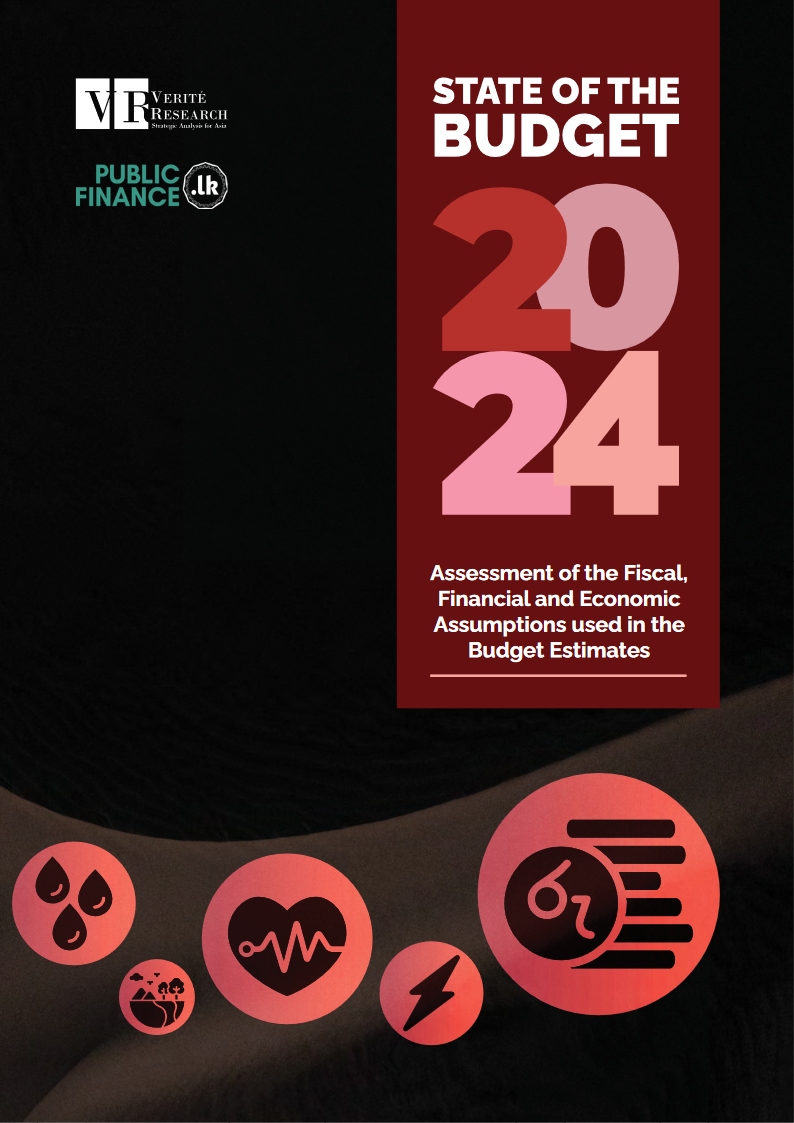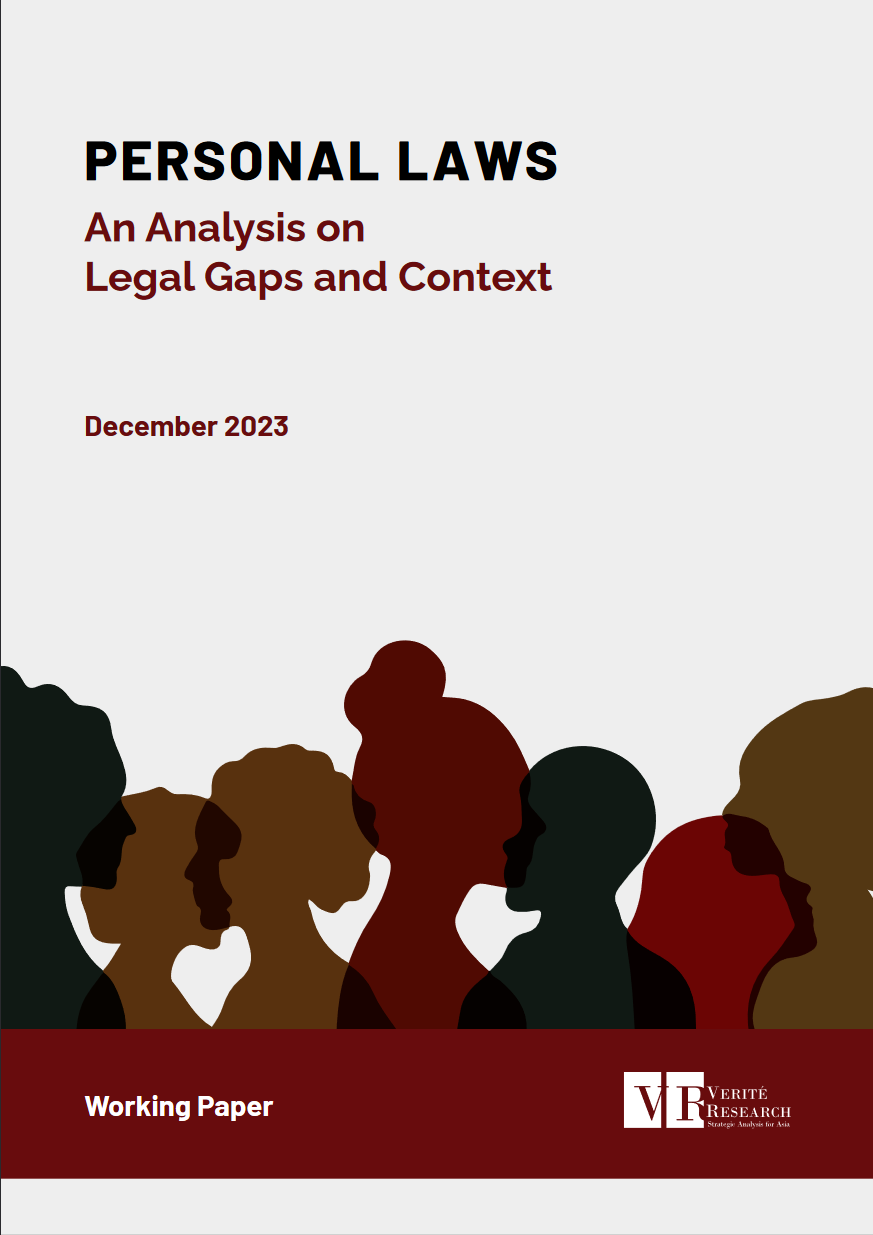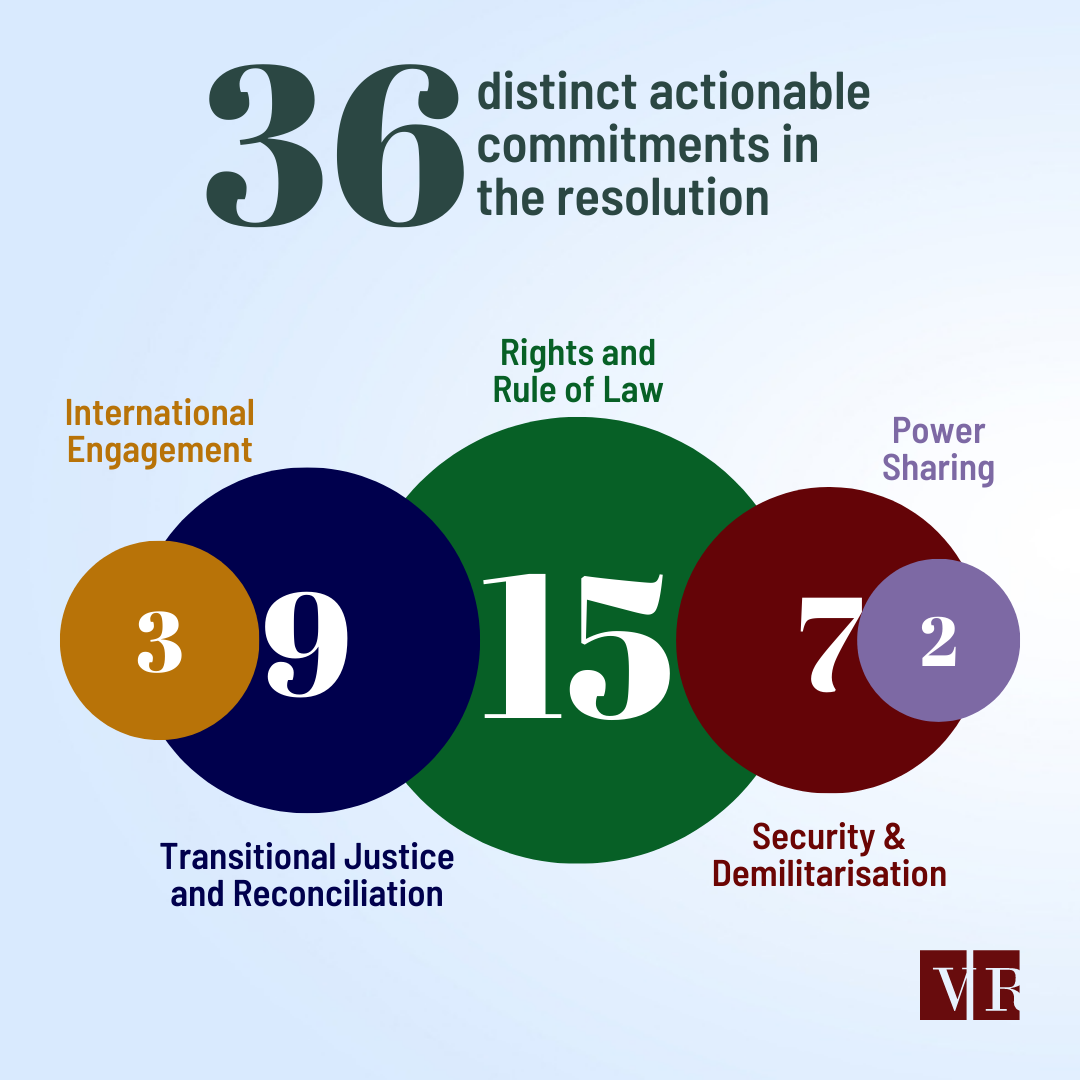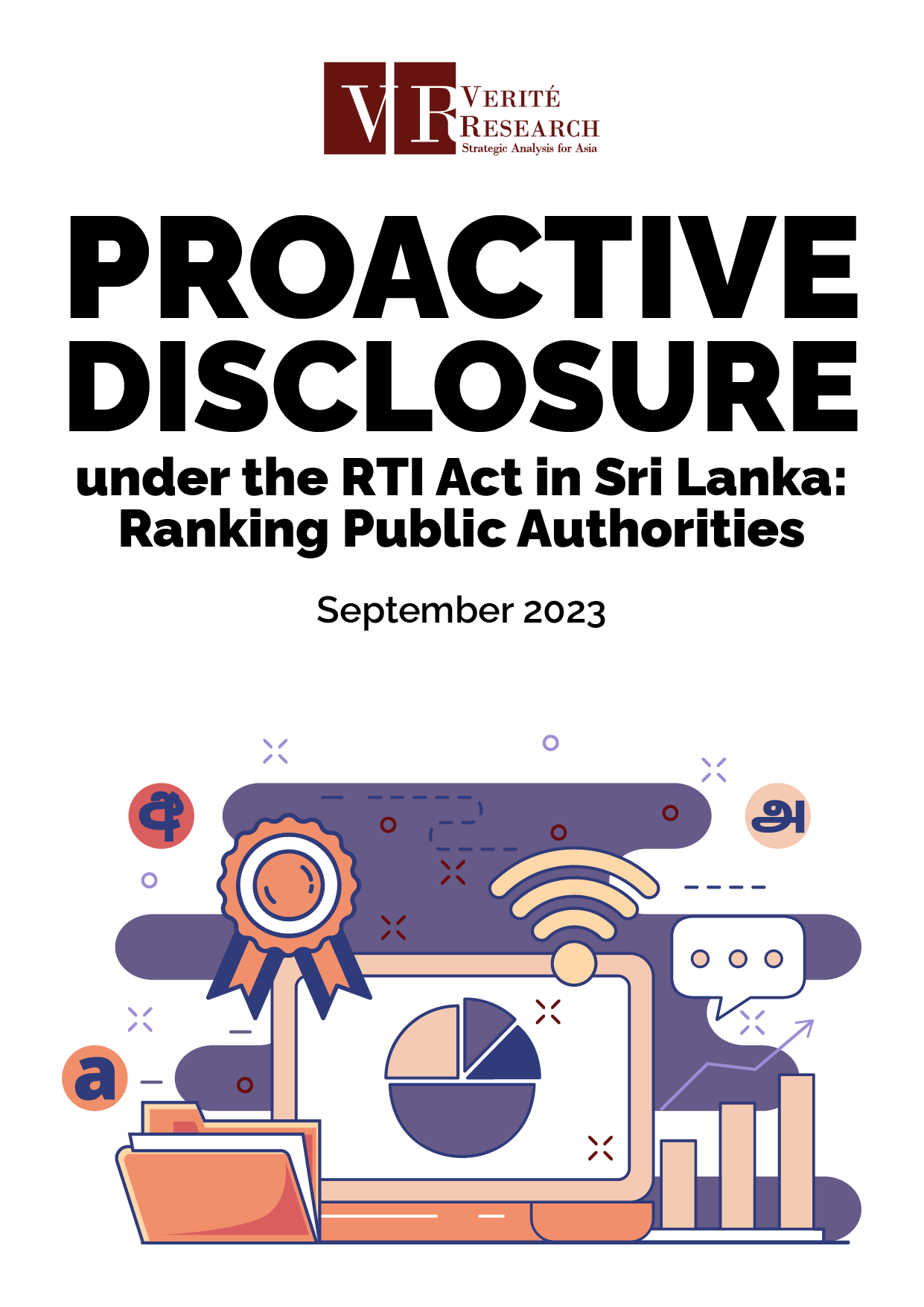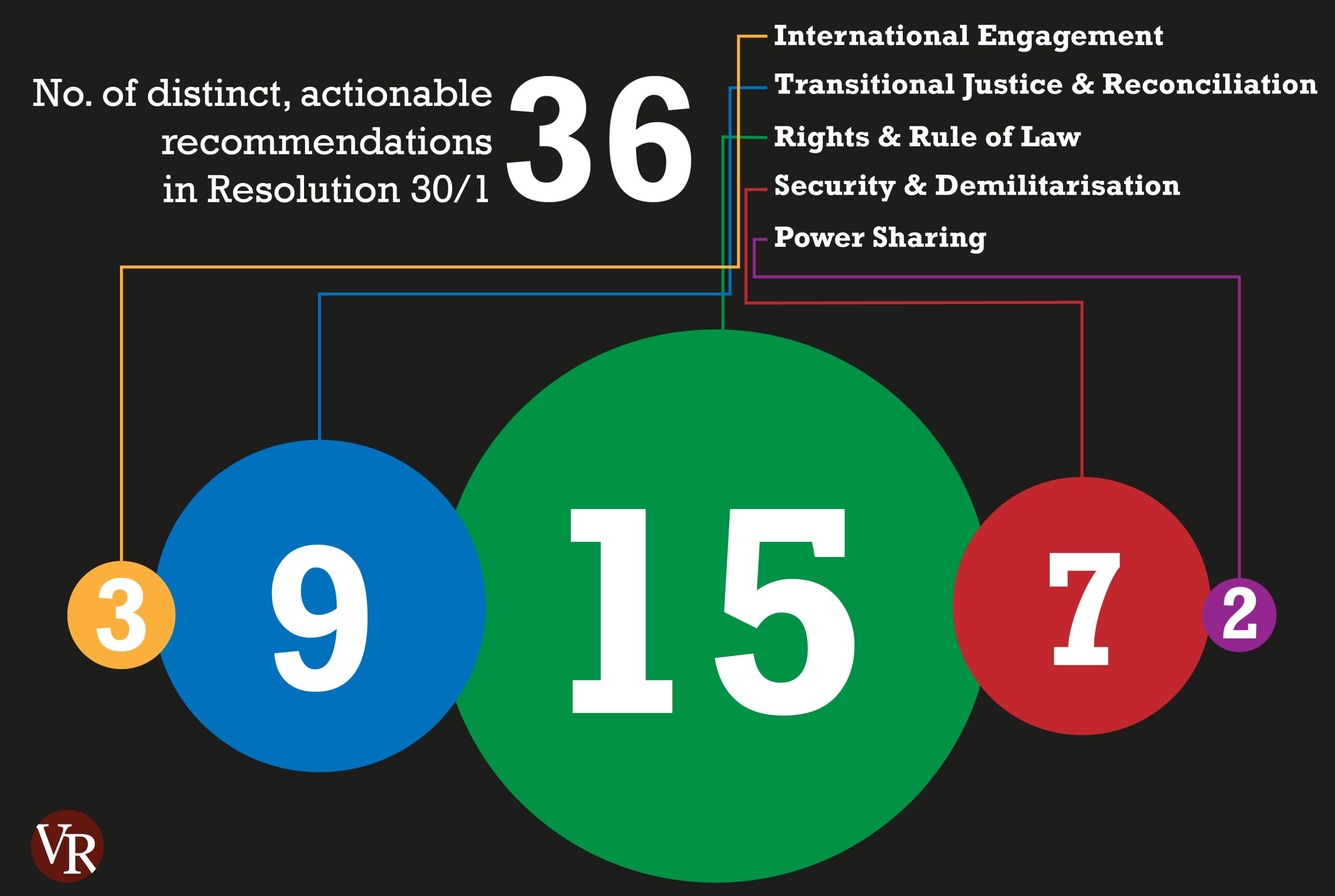A ‘Blueprint for a Rational Government in Sri Lanka‘, created by Verité Research and Manthri.lk, seeks to implement the recommendations from the White Paper on “A Rational Method for Cabinet Formation in Sri Lanka“, published in 2020. It lists down the duties and functions, institutions and acts to be implemented under the 15 ministries proposed in the annexures of the White Paper, following revisions that were supported by extensive expert consultation. This document is the blueprint by which governments can solve 3 key issues relating to irrational cabinet formation: 1. Misalignment of subjects Unrelated subjects being grouped together under one ministry. 2. Fragmentation of subjects Related subjects being split across different ministries. 3. Not having a fixed structure for ministries and their institutions Ministry purviews often change alongside ministerial appointments and shuffles, resulting in institutions shifting from ministry to ministry. The document takes on the form of an extraordinary gazette, and serves as a starting point for a more effectively and efficiently structured form of government.
The State of the Budget 2024 report compiled by Verité Research assesses the financial, economic and fiscal assumptions, the computation of estimates, and reporting standards applied in the 2024 Budget Speech. The state of the Budget is set out in four main sections. Section one introduces the report, sets out its objectives, and provides some background on Sri Lanka’s budget formulation process. Section two draws attention to the various deficiencies in the budget. Section three analyses the revenue estimates used in Sri Lanka’s 2024 Budget. Section four focuses on expenditure allocations and highlights concerns regarding the 2024 budget.
Sri Lanka has specific personal laws applicable to distinct ethnic and religious groups, such as Kandyan law, Muslim law and Tesawlamai law. Critics, both domestically and internationally, have raised concerns about discriminatory provisions in Sri Lanka’s personal laws that contradict constitutional and human rights standards. This working paper aims to assess the disparities between Sri Lanka’s personal laws and international standards, particularly focusing on gender discrimination and impacts on women and children’s rights. Recommendations for reforms aligning with international standards will be proposed, advocating for the evolution of personal laws while retaining Sri Lanka’s pluri-legal aspects.
This report provides a legal gap analysis on sexual harassment through a non-discriminative lens of gender and sexual construct, which compares Sri Lanka’s international obligations against the national laws on sexual harassment at the workplace. International legislative practices as identified from the International Labour Organisation in a global report on the 190 Convention (sexual harassment at work) have been used to inform our recommendations for reform, particularly focusing on employer liability.
This is Verité Research’s study on the Sri Lankan government’s progress in fulfilling the commitments on reconciliation and accountability in UNHRC Resolution 30/1. At the 51st session of the United Nations Human Rights Council (UNHRC) in September and October 2022, Resolution 51/1 was adopted. The Sri Lankan government rejected Resolution 51/1. The vote on Resolution A/HRC/51/L.1 on Sri Lanka was taken on 6 October 2022. The 52nd session of the UNHRC began on 27 February 2023. However, the update on Sri Lanka will be at the 53rd session slated to be held in June 2023. This report analyses the government’s progress in fulfilling all 36 commitments made in UNHRC Resolution 30/1 from March 2022 to February 2023.
Verité Research developed the methodology for this assessment in 2017 with the support of the World Bank and assessed the compliance of 55 public authorities with their online proactive disclosure requirements under the RTI Act. The same methodology was adopted in relation to the 29 cabinet ministries and the Offices of the President and Prime Minister as of July 2022, for the period 01 December 2022 to 31 December 2022.
In 2010, Sri Lanka established a unique framework, overseen by the Standing Cabinet Appointed Review Committee (SCARC), to handle unsolicited proposals (USPs) for public infrastructure funding. These USPs inherently bypass traditional competitive bidding in procurement. The report, ‘Foregoing Competition to Secure Funding for Public Infrastructure: One-Third of Funding Secured was Non-Concessional’, scrutinizes this framework. It reveals a significant discrepancy between the framework’s intended purpose of improving USP evaluation and the actual outcomes, with a substantial portion of the funding secured through SCARC being non-concessional in nature. The report identifies two vulnerabilities in the existing procurement framework that need urgent attention: the Cabinet’s unchecked power to modify procurement guidelines, and SCARC’s ability to approve projects non-compliant with even the minimum criteria outlined without repercussions.
Regulation of social media in Sri Lanka encompasses both a formal and alternative non-legal framework. The study explores the existing legal and non-legal frameworks to regulate the spread of disinformation and hate speech on social media. Thereby, it presents potential implications of the spread of disinformation and hate speech on social media in the specific context of ethno-religious violence in Sri Lanka.
This is Verité Research’s latest study on the Sri Lankan government’s progress in fulfilling the commitments on reconciliation and accountability in UNHRC Resolution 30/1. At the 51st session of the United Nations Human Rights Council (UNHRC) in September and October 2022, Resolution 51/1 was adopted. The Sri Lankan government rejected Resolution 51/1. A written update on Sri Lanka was scheduled at the 54th session on 11 September 2023. This report analyses the government’s progress in fulfilling all 36 commitments made in UNHRC Resolution 30/1 from March 2023 to August 2023.
This is Verité Research’s latest study on the Sri Lankan government’s progress in fulfilling the commitments on reconciliation and accountability in UNHRC Resolution 30/1. At the 46th session of the United Nations Human Rights Council (UNHRC), Resolution 46/1 on Sri Lanka was adopted on 23 March 2021. The 49th UNHRC session began on 28 February 2022 and Sri Lanka’s progress in implementing Resolution 46/1 and the preceding Resolution 30/1 was taken up on 4 March and 7 March 2022. This report analyses the government’s progress in fulfilling all 36 commitments made in UNHRC Resolution 30/1 from February 2021 to March 2022.
